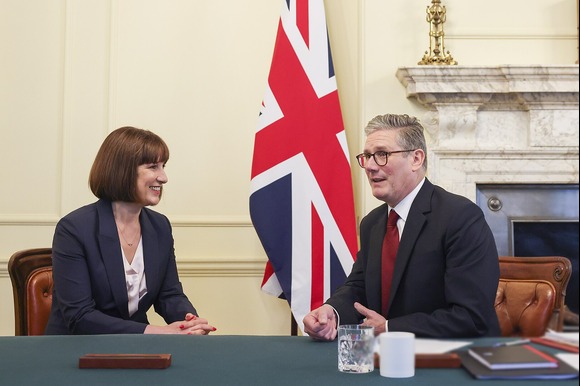The government is confronting a deeper-than-expected shortfall in public finances as it prepares for next month’s Budget, following a significant downgrade to the nation’s productivity outlook by its official forecaster.
Productivity Downgrade Widens Budget Deficit
The Office for Budget Responsibility (OBR) is understood to have revised down its productivity forecast, potentially leaving Chancellor Rachel Reeves with a £20bn gap to fill if she is to meet her tax and spending targets, the BBC has learned.
Reeves has confirmed that both tax rises and spending cuts are on the table for next month’s fiscal statement. The Treasury declined to comment on what it described as “speculation” ahead of the OBR’s final projections, which will be published on 26 November alongside the Budget. The OBR will submit its final draft forecasts, including productivity assumptions, to the Treasury this Friday.
Sluggish Productivity Hampers Growth
Productivity — a measure of output per hour worked — plays a crucial role in determining long-term economic growth and government revenues. The OBR had previously assumed a modest rebound in productivity growth, but that recovery has failed to materialise.
According to reports first published by the *Financial Times, the OBR has downgraded its productivity outlook by 0.3 percentage points, bringing it closer to estimates by the Bank of England. Even small changes in productivity assumptions can have major fiscal implications, as they directly affect how much the government can expect to collect in taxes and how much it needs to borrow.
£21bn Added to Borrowing Forecasts
The Institute for Fiscal Studies (IFS) has calculated that every 0.1 percentage point reduction in productivity growth adds about £7bn to government borrowing by 2029–30. A 0.3-point downgrade, therefore, could increase borrowing needs by £21bn — effectively doubling the fiscal gap to around £20bn, up from the £10–£14bn previously anticipated.
This shortfall could be bridged through higher taxes, deeper spending cuts, or increased borrowing — each of which poses political and economic challenges for the government.
Reeves Reaffirms Fiscal Rules
Chancellor Reeves has repeatedly stressed her commitment to two “non-negotiable” fiscal rules:
- No borrowing to fund day-to-day public spending by the end of this Parliament.
- Reducing government debt as a share of national income by the same timeframe.
Speaking to business leaders in Saudi Arabia on Monday, Reeves acknowledged that the OBR was “likely to downgrade productivity,” describing the UK’s performance since the 2008 financial crisis and Brexit as “very poor.”
Internal Frustration Over Forecast Timing
While the OBR is expected to set out its reasoning in full later this month, some ministers have privately expressed frustration that the downgrade is coming now. They argue that an earlier revision could have influenced decisions during the summer’s Spending Review.
Mixed Economic Indicators Offer Some Relief
Despite the productivity downgrade, other economic factors may provide partial relief for the Treasury. A recent decline in the interest rates paid on government debt could ease fiscal pressures. However, new spending commitments — including reversals on welfare policies — and the chancellor’s aim to rebuild a financial buffer mean that significant tax rises are still being discussed.
Analysts suggest potential breaches of election pledges may be on the horizon, with speculation pointing to possible adjustments to income tax thresholds or rates.
Trade Deals Announced During Gulf Visit
Amid these fiscal challenges, the government also unveiled a series of trade and investment agreements with Saudi Arabia, following Reeves’s recent trip to the Gulf. The deals include up to £5bn in backing from UK Export Finance for projects in Saudi Arabia, which officials said would “unlock” new contracts for British firms.
Additional agreements include a £37m investment by Saudi cybersecurity company Cipher to establish its European headquarters in London and a £75m investment from Saudi financiers in British digital bank Vemi.
Reeves also held meetings with ministerial counterparts from Qatar and Kuwait to discuss progress on a wider trade deal between the UK and the Gulf Cooperation Council.
Outlook Ahead of the Budget
With the final OBR report due on 26 November, the Treasury will submit its first draft Budget measures next week. The combination of weaker productivity growth, tight fiscal rules, and growing spending pressures leaves Reeves facing difficult decisions in what could be the most consequential Budget of her tenure so far.






